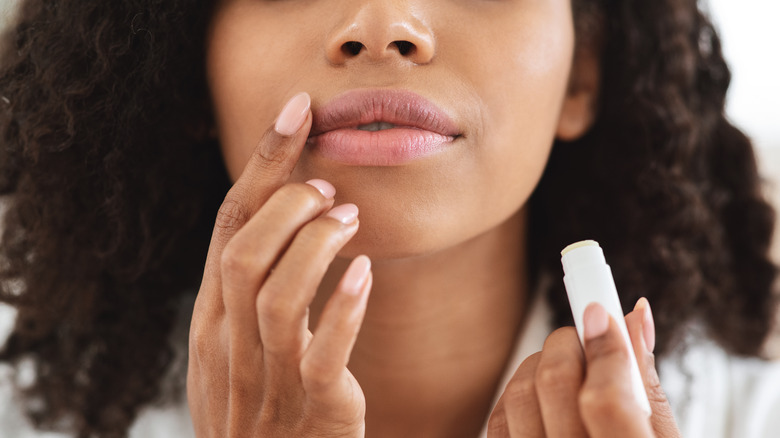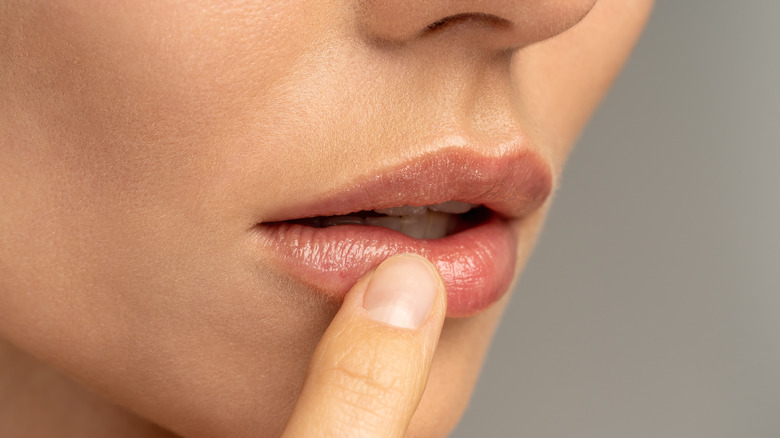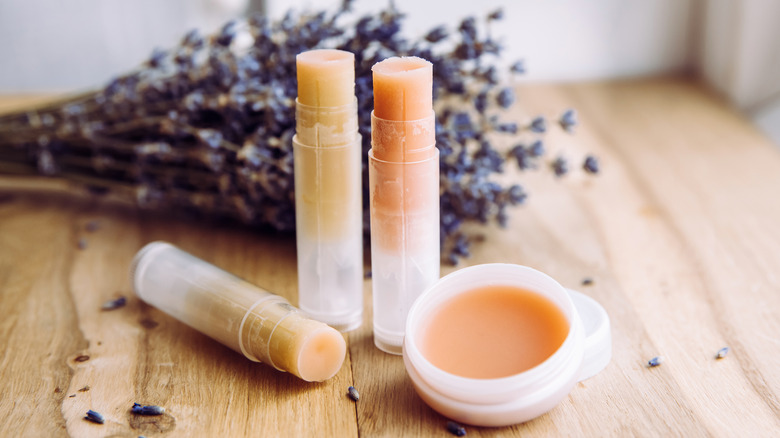The Common But Concerning Ingredient That Might Be In Your Lip Balm
Your lips are much more than just the final step in tying a makeup look together. As one of the most sensitive parts of the skin, they are prone to various conditions like cheilitis, aka chapped lips (via Cleveland Clinic), and even sunburn (via Healthline). Whether the temperature is hot or cold, your lips are often the first to react, which usually ends with you having an array of lip balms and other treatments lying around to care for them.
But have you ever stopped to precisely read what's in your lip balm? Unlike lipstick and lip gloss, you probably don't spend a considerable amount of time checking the ingredients to see if it's cruelty-free or how the product will enhance your lips. In all likelihood, the reason you gravitate towards certain lip balms is either down to the brand or how it treats a particular problem.
While it may seem trivial to check the ingredients of your favorite lip balm, you may be missing a major red flag — especially if you're trying to live a sustainable and environmentally-friendly lifestyle.
Petroleum and paraffin oil are often found in lip balms
One of the most common ingredients in any lip balm is mineral oil. As the name suggests, it's a blanket term for any fat derived from a particular mineral (via L'Oréal Groupe). You'll often find mineral oils listed as petroleum and paraffin oil in the cosmetic world. They are derived from petroleum (yes, the same petroleum you put in your car); they are also commonly used as emollients to moisturize the skin. But unlike the gas your car guzzles, these mineral oils are highly refined and bear no similarity to the raw, naturally-occurring liquid (via The Derm Review).
Petroleum or liquid paraffin must undergo rigorous testing before being used in your lip balm and must only be used if it's "fully refined," as the Campaign for Safe Cosmetics notes. So while there's no reason to worry about these mineral oils being dangerous to apply to your skin, how these minerals are collected can significantly impact the environment.
Thankfully, there are some environmentally-friendly alternatives
As clean cosmetic chemist Krupa Koestline tells mindbodygreen, "it's environmentally irresponsible to use mineral oils" like petroleum and paraffin oil "when there are vegetable and fruit oils, like coconut oil, that are more sustainable." Not only is it an unsustainable ingredient, but it also takes a long time to biodegrade. So if you decide a particular lip balm isn't working with your skin and throw it out, the balm itself takes longer to decompose, thanks to these ingredients. As mindbodygreen lifestyle notes, as the balm biodegrades, these mineral oils can gather in rivers and oceans.
But thankfully, avoiding these mineral oils is as easy as reading the ingredients. Instead of choosing your go-to brand, opt for lip balms that use, as Koestline said, vegetable and fruit oils or even sodium hyaluronate. This topical hyaluronic acid can penetrate deeply into the skin and maintain healthy skin hydration (via the National Library of Medicine).


